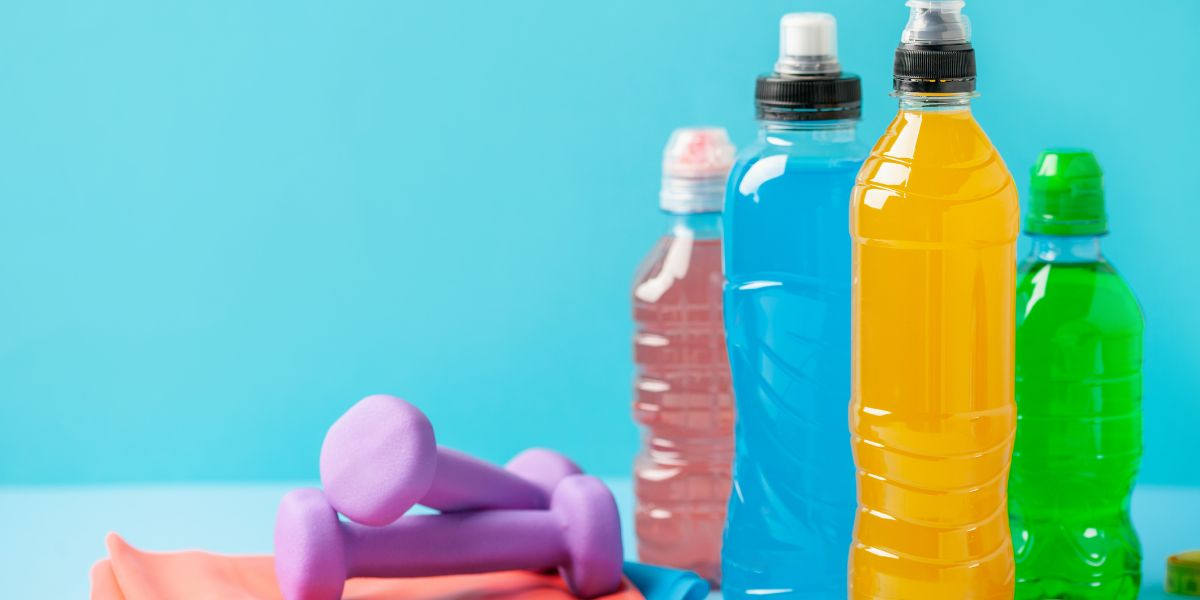Sports drinks have long been marketed as essential beverages for athletes and fitness enthusiasts, promising to replenish electrolytes, boost energy levels, and enhance performance. However, amid the flashy advertising campaigns and endorsements by professional athletes, it’s crucial to examine the facts behind these colorful beverages.

What Are Sports Drinks?
Sports drinks are specially formulated beverages designed to hydrate and replenish electrolytes lost through sweating during intense physical activity. They typically contain water, carbohydrates, electrolytes (such as sodium, potassium, and magnesium), and sometimes added vitamins and flavorings. While originally developed for athletes engaged in prolonged or vigorous exercise, sports drinks have become increasingly popular among recreational exercisers and even non-athletes.
The Role of Electrolytes in Hydration
- Sodium: One of the primary electrolytes found in sports drinks, sodium plays a crucial role in maintaining fluid balance and facilitating the absorption of water and nutrients in the body. During prolonged exercise, sweating can lead to significant sodium loss, which may impair hydration and performance. Sports drinks help replenish sodium levels and prevent dehydration.
- Potassium: Another key electrolyte, potassium, helps regulate muscle contractions, nerve function, and fluid balance. While potassium loss through sweating is generally lower than sodium loss, it is still important to replenish potassium stores, especially during endurance activities lasting several hours.
Carbohydrates and Energy
- Quick Energy Source: Many sports drinks contain carbohydrates in the form of sugars (such as glucose, sucrose, and fructose) or complex carbohydrates (such as maltodextrin). These carbohydrates provide a rapid source of energy during exercise, helping to fuel working muscles and sustain performance during prolonged or intense activity.
- Optimal Concentration: The concentration of carbohydrates in sports drinks is carefully calibrated to enhance absorption and minimize gastrointestinal discomfort during exercise. Most sports drinks contain around 6-8% carbohydrates, which has been shown to optimize fluid absorption and energy delivery without causing digestive issues.
The Truth About Performance Enhancement
- Hydration: Sports drinks can be effective at promoting hydration and maintaining electrolyte balance during prolonged or intense exercise, particularly in hot and humid conditions where sweat losses are high. However, for shorter-duration activities or low-intensity exercise, water is usually sufficient for maintaining hydration.
- Performance: While sports drinks can help sustain energy levels and delay fatigue during prolonged exercise, their impact on performance may be overstated for casual exercisers or those engaging in moderate-intensity activities. Consuming excessive amounts of sports drinks without the corresponding energy expenditure can lead to unnecessary calorie intake and potential weight gain.
The Drawbacks of Sports Drinks
- Calorie Content: Many sports drinks contain significant amounts of added sugars, which can contribute to excessive calorie consumption and weight gain if consumed in large quantities, especially outside of exercise sessions.
- Acidity and Dental Health: The high acidity of sports drinks, coupled with their sugar content, can increase the risk of dental erosion and tooth decay, particularly if consumed frequently throughout the day.
Conclusion: Making Informed Choices
While sports drinks can be a valuable tool for athletes engaged in prolonged or intense exercise, they are not a one-size-fits-all solution and may not be necessary for everyone. For casual exercisers or those engaging in shorter-duration activities, water remains the most effective and economical choice for hydration. When choosing a sports drink, it’s essential to consider your individual hydration needs, the duration and intensity of your exercise, and your overall dietary goals. By making informed choices, you can enjoy the benefits of sports drinks while avoiding their potential drawbacks.